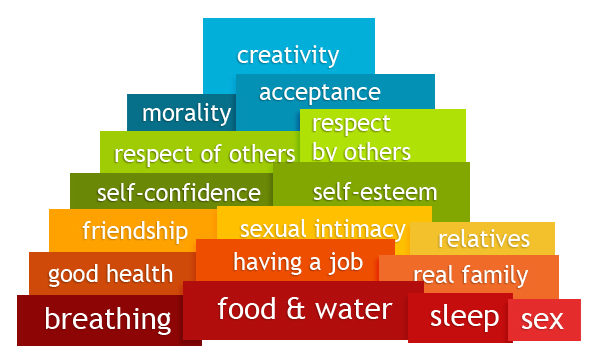GRIEF:
A while ago, we wrote an article about the need for self-compassion in grief. At the time, we defined self-compassion and we made a case for the ‘what’ and the ‘why’, but we didn’t get into a lot of detail about the ‘how’.
I truly think practicing self-kindness is an art. It requires a person to identify what they need and to claim their right to have it. This may seem like a simple explanation, but it isn’tsimple in practice. Especially when a person has to fight against years of implicit and explicit attitudes about what they should need, how they should be, and what they do and do not deserve.
Knowing this, I wanted to spend a little time today brainstorming some of the most basic ways that grieving people can be kind to themselves. Will these things all be easy to do? No, not necessarily. Some will, some won’t…but it’s a place to start at the very least. In the long run, “being kind to yourself” will mean different things to different people, so this is not a prescription. I encourage you to read this article and then consider what self-kindness means in the broader context of your life.
7 Ways to Treat Yourself With Kindness While Grieving:
1. Don’t compare:
First, try not to compare yourself to your expectations. In fact, it can be helpful to let go of your expectations about grief entirely. Throw things like grief stages, tasks, and timelines out the window because individual grief is unique and unpredictable. I realize how scary it can be to look at grief as a complete unknown, but in doing so you allow for a more flexible and accepting understanding of your experiences.
Second, learn what you can from the grief experiences of others, but don’t compare. Don’t compare your grief because this helps no one. Don’t compare your methods of coping because everyone copes with grief differently. And finally, don’t compare your overall healing to your perception of how others are healing. Grief is a story without a true end and everyone’s ups and downs happen at different times and in different places.
Finally, don’t compare yourself to yourself. We’ve written about this in the past, but the gist of it is this – oftentimes when people try to assess how they’re doing in grief, they make the mistake of comparing themselves to the person they were before the loss (who, btw, you’ll never be again – and that’s okay) or some idealized idea of who they will be “when they feel better”. These comparisons aren’t fair because they discount all the progress you’ve made in your grief. If you still insist on comparing yourself to yourself in grief, we recommend comparing yourself to how you felt on day 1 of your grief.

2. Accept that a wide range of emotional, physical, and cognitive experiences are normal in grief:
Again, this goes back to those implicit and explicit beliefs about how grief is supposed to be. In our society, in particular, people tend to think grief looks a certain way. Picture things like sadness, talking about emotions, “moving on” after one year, and so on.
Some of these expectations evolve from outright myths and misconceptions about grief (i.e. grief timelines and the idea of moving on). Others simply reflect a limited understanding of grief, which is normal and understandable. The reality is most people don’t know how complex grief is until they’ve experienced it themselves.
Having a narrow conceptualization of what is normal in grief often causes people to feel like they’re not doing as well as they ought to or, worse, like they’re completely losing it. For this reason, we think it can be extremely helpful for people to learn about the long list of emotional, physical, cognitive, and behavioral responses that are considered “normal” in grief. Though it won’t necessarily make distressing experiences any easier, you at least have the reassurance of knowing there’s nothing wrong with you!
3. Give distressing emotions and experiences the time and attention they need:
This one might seem counterintuitive to many. Focusing on distressing emotions, memories, and grief triggers may seem like self-torture, not self-kindness…and sometimes it is. When a person perseverates on such experiences in chronic self-blaming and self-shaming ways, it isn’t helpful. On the other hand, it isn’t helpful to run away from these thoughts and emotions either.
Think about it the same way you would think about coping with a serious physical illness or injury. It wouldn’t help you to ignore the malady – it wouldn’t help you to stare at yourself in the mirror saying you’re weak, stupid or to blame – the only thing that would help is to acknowledge the pain and find ways to take care of yourself and heal. The pain of grief is just as worthy of your self-care and your goals should be the same – to find constructive ways to heal where you can and to manage the pain where you can’t (just yet).

4. Ask for help/Accept help:
As simple as this may sound, we know asking for help is a tall order. Everything about it can be challenging – identifying what you need, reaching out and asking for assistance, and then actually allowing the person to do whatever it is you asked for without feeling guilty, apologetic, weak, selfish, burdensome, or as though you have to send ten follow-up texts saying “Thanks Again!!!!!”. I can see some of you involuntarily cringing.
Here’s the thing, you’ve experienced a major hardship and now is the time for you to let others take care of you. Someday, when those people need taking care of, you will be there to return the favor (we hope). Also, though their offers may be ineffective, quite often when people say they want to help – they mean it!
5. Focus on basic needs like breathing, sleeping, eating, connecting, and caring:
The importance of meeting your basic needs is often overlooked when your entire world has been shattered to pieces. The scope of what you’re dealing with is so ginormous, who can be bothered to think about something like getting enough sleep? But if you are able to meet some of your most basic needs, you’ll be in a better position physically and emotionally to deal with your other more complex and nuanced stressors. Plus, in a world that now seems to lack rhyme or reason, taking care of your basic needs is often one of the few and/or first things you can manage.

6. Give yourself a break:
Whenever we talk about finding ways to cope with grief, we also advocate for finding ways to take a break. As we discussed in our post, A Balanced Approach for Coping with Life After Loss:
“While many people think coping with life after loss is only about confronting and coping with difficult grief emotions, we believe that coping encapsulates anything that helps you feel better and gives you a boost of positive emotion.
Look, sometimes you just need to give your brain, body, and frayed emotions a rest!
7. Love the person who died unapologetically:
More often than not, grieving people maintain a continued relationship with the person who died, but for varying reasons, they may feel they need to keep their ongoing bond private. Let’s face it, society has been known to give grievers the side eye when they share the ways they stay connected with their deceased loved ones. Rude!
What we know about grief is that an ongoing love and attachment is totally normal! So, go ahead and talk about your loved one as much as you want, do all the little things that keep you close, and, by all means, love them unapologetically.


